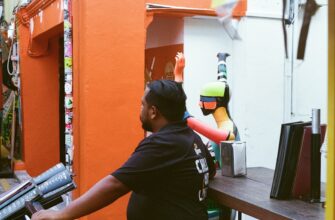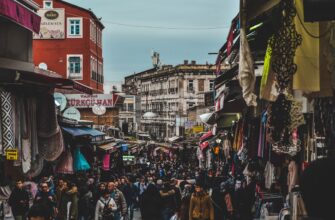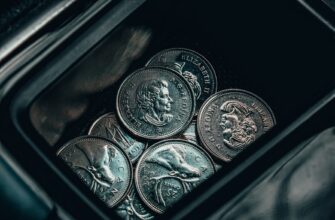- How to Buy Bitcoin in Bolivia: Your 2024 Step-by-Step Guide
- Is Bitcoin Legal in Bolivia?
- Essential Requirements to Buy Bitcoin in Bolivia
- Step-by-Step: How to Buy Bitcoin in Bolivia
- Top Bitcoin Platforms for Bolivian Users
- Storing Your Bitcoin Securely in Bolivia
- Frequently Asked Questions (FAQ)
- Can I buy Bitcoin with Bolivianos?
- Are Bitcoin profits taxable in Bolivia?
- What’s the minimum Bitcoin purchase amount?
- How long do Bitcoin transactions take?
- Can I use Bolivian banks for crypto purchases?
- Is Bitcoin mining legal in Bolivia?
How to Buy Bitcoin in Bolivia: Your 2024 Step-by-Step Guide
With cryptocurrency adoption growing globally, many Bolivians are exploring how to buy Bitcoin as a digital asset or inflation hedge. Despite Bolivia’s complex regulatory landscape, purchasing Bitcoin is possible through secure international platforms. This comprehensive guide walks you through every step – from legal considerations to secure storage – ensuring you can confidently enter the crypto market.
Is Bitcoin Legal in Bolivia?
Bitcoin operates in a gray area in Bolivia. The Central Bank banned cryptocurrencies in 2014, prohibiting financial institutions from processing crypto transactions. However, individual ownership isn’t illegal. Bolivians can legally buy, hold, and trade Bitcoin through peer-to-peer (P2P) platforms and international exchanges, though transactions must be self-managed without involving local banks.
Essential Requirements to Buy Bitcoin in Bolivia
Before purchasing Bitcoin, ensure you have:
- Internet access: Stable connection for trading
- Government ID: Passport or cedula for exchange verification
- Cryptocurrency wallet: Software (like Exodus) or hardware wallet (like Ledger)
- Payment method: Bank transfer, cash deposit, or digital payment app
- VPN service: Recommended for accessing global exchanges
Step-by-Step: How to Buy Bitcoin in Bolivia
- Choose a P2P Exchange: Sign up on platforms like Binance P2P or LocalBitcoins that support Bolivian buyers.
- Verify Your Identity: Complete KYC procedures by uploading your ID.
- Select Payment Method: Opt for cash deposit, bank transfer, or apps like PayPal based on seller terms.
- Place Your Order: Search for sellers accepting Boliviano (BOB), set amount, and confirm trade.
- Send Payment & Receive BTC: Transfer funds as instructed. Bitcoin releases to your wallet after seller confirmation.
- Secure Your Bitcoin: Immediately transfer coins from exchange to your private wallet.
Top Bitcoin Platforms for Bolivian Users
These exchanges work reliably in Bolivia:
- Binance P2P: Largest liquidity, BOB payments, escrow protection
- LocalBitcoins: In-person cash trades, diverse payment options
- ByBit: Low fees, intuitive interface, BOB trading pairs
- Paxful: 300+ payment methods, strong dispute resolution
Tip: Always compare seller ratings and transaction limits before trading.
Storing Your Bitcoin Securely in Bolivia
Protect your investment with these wallet strategies:
- Hardware Wallets (e.g., Trezor, Ledger): Offline storage – immune to hacks
- Mobile Wallets (e.g., Trust Wallet): Convenient for small amounts
- Paper Wallets: Cold storage for long-term holdings
Avoid keeping Bitcoin on exchanges – only 5-10% for active trading.
Frequently Asked Questions (FAQ)
Can I buy Bitcoin with Bolivianos?
Yes! P2P platforms like Binance and LocalBitcoins connect you with sellers accepting BOB via bank transfers, cash deposits, or digital payments.
Are Bitcoin profits taxable in Bolivia?
Bolivia has no specific crypto tax laws. However, significant profits from trading may fall under capital gains tax. Consult a local tax advisor.
What’s the minimum Bitcoin purchase amount?
Most exchanges allow purchases as low as 50 BOB ($7 USD). Limits vary by seller on P2P platforms.
How long do Bitcoin transactions take?
Blockchain confirmations take 10-30 minutes. P2P trades complete within hours once payment is verified.
Can I use Bolivian banks for crypto purchases?
No. Banks block crypto-related transactions. Use cash deposits or digital payment apps instead.
Is Bitcoin mining legal in Bolivia?
Mining isn’t explicitly banned but faces regulatory uncertainty. High electricity costs make it impractical for most individuals.
By following this guide, Bolivians can safely navigate the crypto landscape. Start small, prioritize security, and stay informed about regulatory changes to maximize your Bitcoin journey.








